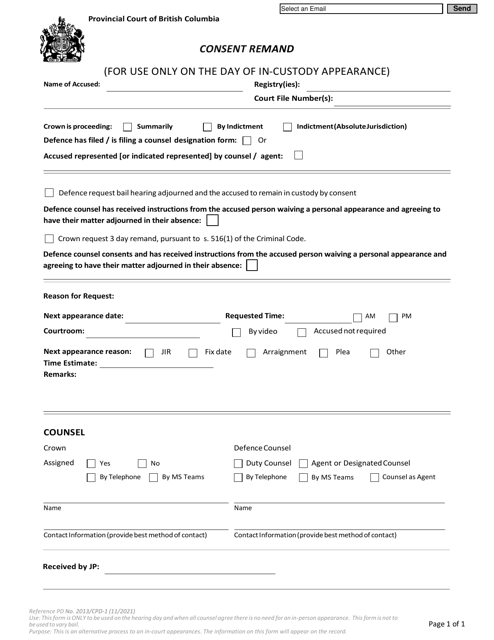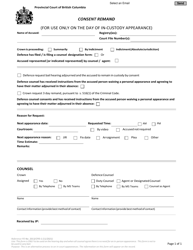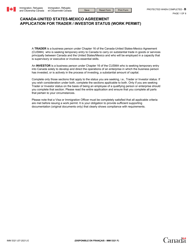Form 3 (CPD-1) Consent Remand - British Columbia, Canada
Form 3 (CPD-1) Consent Remand is a document used in British Columbia, Canada, for obtaining consent for the remand of an accused person. It is typically used in criminal proceedings where the accused agrees to be remanded or held in custody for a specified period of time for further investigations or court proceedings.
Form 3 (CPD-1) Consent Remand - British Columbia, Canada - Frequently Asked Questions (FAQ)
Q: What is Form 3 (CPD-1)?
A: Form 3 (CPD-1) is a consent remand form used in British Columbia, Canada.
Q: What is the purpose of Form 3 (CPD-1)?
A: The purpose of Form 3 (CPD-1) is to seek the consent of the accused to a remand in custody.
Q: Who uses Form 3 (CPD-1)?
A: Form 3 (CPD-1) is used by the Crown counsel in British Columbia, Canada.
Q: What happens if the accused gives consent on Form 3 (CPD-1)?
A: If the accused gives consent on Form 3 (CPD-1), they agree to a remand in custody until their next court appearance.
Q: Is Form 3 (CPD-1) specific to a certain type of offense?
A: No, Form 3 (CPD-1) can be used for any criminal offense in British Columbia, Canada.
Q: Is Form 3 (CPD-1) used outside of British Columbia?
A: No, Form 3 (CPD-1) is specific to the province of British Columbia in Canada.



